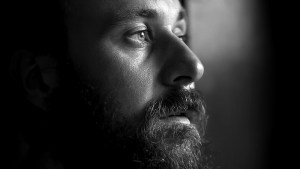The saints are human beings like the rest of us, and face similar challenges. With ideas from Edwige Billot, author of a recent book on getting guidance from the saints on how to handle our emotions (published in French: “Et si les saints nous coachaient sur nos émotions?”), we’re continuing our short series of articles on helpful advice from our holy brothers and sisters in heaven. Today, we look at overcoming fear, following the guidance of St. Ignatius of Loyola, founder of the Jesuits.
Do what you can and leave the rest to Providence
Living in the present, doing what you can, and trusting God are three powerful levers for overcoming all kinds of fear.
“When you’ve tried to do one’s best, you can leave everything else to the One who has the power to accomplish all that he wants.”
First, it’s good to strive to live in the present. According to St. Ignatius, “anxiety and worry of the mind are not pleasing to God.”
Imagining catastrophic scenarios, dreading tomorrow, and feeling anguish in the face of the unknown are all based on ideas that are merely possibilities and only amplify our fear. Moreover, anxiety about the future can paralyze us and prevent us from living in the present.
The remedy? Choose to trust and rely on Divine Providence, not blindly but after having done everything in our power. In a letter dated 1555, a year before his death, St. Ignatius wrote powerful words to allay any fears:
It seems to me that you should resolve to do what you can, calmly. Do not be anxious about everything, but leave to divine Providence what you cannot accomplish by yourself.
Our reasonable care and solicitude in carrying out those things which we have to attend to as a matter of duty are pleasing to God. Anxiety and worry of the mind are not pleasing to God. The Lord wants our limitations and weaknesses to be supported by his strength and omnipotence; he wants us to believe that his goodness can make up for the imperfection of our means.
Those who take on many tasks, even with the right intention, must resolve to do only what is in their power, without grieving if they do not succeed in doing everything as they would like. This, provided, however, that they have accomplished all that human nature can and should do according to the mandates of their conscience.
If we have to leave certain things undone, we must be patient and not think that God expects us to do what we cannot do: neither does he want man to be distressed by his limitations. As long as we give satisfaction to God, which is more important than giving satisfaction to men, there is no need to get overly fatigued. Much to the contrary, when one has endeavored to do one’s best, one can leave everything else to him who has the power to accomplish all that he wants.



